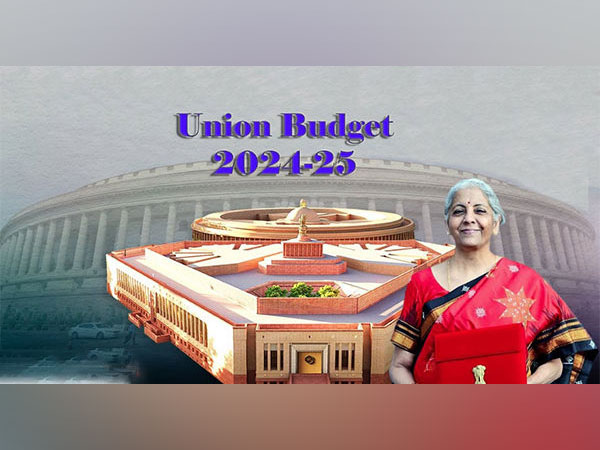Finance Minister Nirmala Sitharaman on Tuesday presented the Union Budget for 2024-2025. The budget aims to foster employment, skill development, and economic growth with a focus on various sectors, including agriculture, manufacturing, and urban development.
The Finance Minister said that as mentioned in the interim budget, the focus is on 4 major castes, namely poor, women, youth and farmer.
Inflation and Economic Stability
India’s inflation remains low and stable, moving towards a 4% target. Core inflation is currently at 3.1%. Measures are being taken to ensure adequate supply of perishable goods in the market.
Prime Minister’s Package
A significant feature of this budget is the Prime Minister’s package, which includes five schemes and initiatives with an outlay of ₹2 lakh crore. These schemes aim to provide employment, skilling, and other opportunities for 4.1 crore youth over five years. This year, ₹1.48 lakh crore has been allocated for education, employment, and skilling.
Agriculture
The budget emphasizes productivity and resilience in agriculture, with plans to release 109 high-yielding and climate-resilient varieties of 32 crops for farmers. In the next two years, 1 crore farmers will be initiated into natural farming. A provision of ₹1.52 lakh crore has been made for the agriculture and allied sector this year.
Employment and Skilling
Three new schemes for employment linked incentives will be implemented, focusing on first-time employees and support for employers and employees. A new centrally sponsored scheme will be launched for skilling 20 lakh youth over five years, and 1,000 Industrial Training Institutes will be upgraded. Additionally, the Model Skill Loan Scheme will be revised to facilitate loans up to ₹7.5 lakh with government-backed guarantees.
Inclusive Human Resource Development and Social Justice
The budget aims to support craftsmen, artisans, self-help groups, and women entrepreneurs through various schemes such as PM Vishwakarma, PM SVANidhi, and Stand-Up India. The Pradhan Mantri Janjatiya Unnat Gram Abhiyan will be launched to improve the socio-economic conditions of tribal communities. A provision of ₹2.66 lakh crore has been made for rural development.
Manufacturing and MSMEs
Special attention is given to MSMEs and labor-intensive manufacturing. The Mudra loan limit will be enhanced to ₹20 lakh from the current ₹10 lakh. Financial support will be provided for setting up 50 multi-product food irradiation units and 100 food quality and safety testing labs. A new scheme will be launched to provide internship opportunities in 500 top companies to 1 crore youth over five years.
Urban Development
Under PM Awas Yojana Urban 2.0, the housing needs of 1 crore urban poor and middle-class families will be addressed with an investment of ₹10 lakh crore. Water supply, sewage treatment, and solid waste management projects will be promoted in 100 large cities. A new scheme will support the development of 100 weekly street food hubs in select cities over the next five years.
Energy Security
The PM Surya Ghar Muft Bijli Yojana has been launched to install rooftop solar plants, providing free electricity up to 300 units every month. Nuclear energy will also play a significant role in India’s energy mix.
Infrastructure
The budget allocates ₹11.11 lakh crore for capital expenditure this year. Phase IV of Pradhan Mantri Gram SadakYojana (PMGSY) will be launched to provide all-weather connectivity to 25,000 rural habitations. Financial support will be provided for irrigation and flood mitigation projects in Bihar and other states.
Innovation, Research & Development
The Anusandhan National Research Fund will be operationalized for basic research and prototype development. A venture capital fund of ₹1,000 crore will be set up to expand the space economy by five times in the next 10 years.
Next Generation Reforms
The government will formulate an Economic Policy Framework to guide the next generation of reforms. Labour-related reforms will facilitate a wide array of services for employment and skilling. Rules and regulations for Foreign Direct Investment and Overseas Investments will be simplified.
Income Tax Reforms
The budget provides significant relief to salaried individuals and pensioners. The standard deduction has been increased from ₹50,000 to ₹75,000. The deduction on family pension has been increased from ₹15,000 to ₹25,000. The new tax regime structure has been revised to benefit salaried employees up to ₹17,500 in income tax. The angel tax has been abolished for all classes of investors to boost start-ups. Corporate tax on foreign companies has been reduced from 40% to 35%.
Capital Gains and Custom Duties
Short-term capital gains will now attract a rate of 20% on certain financial assets, while long-term gains on all financial and non-financial assets will attract a rate of 12.5%. Custom duties on various items, including precious metals and mobile phones, have been reduced to make them cheaper.
Budget Estimates
For 2024-25, the total receipts other than borrowings and the total expenditure are estimated at ₹32.07 lakh crore and ₹48.21 lakh crore respectively. The fiscal deficit is estimated at 4.9% of GDP.
By Manish Poswal




















